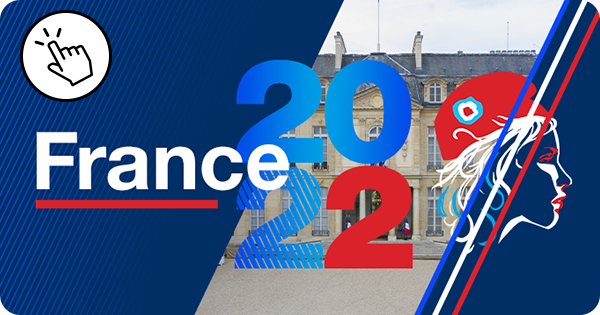A presidential campaign is a fount of coined phrases. Be they expressions finessed for maximum impact by a candidate's team or deployed spontaneously on the trail, evocative terms bring texture to an election race and come to define a campaign – for a news cycle or forever in the history books. Loath to let the language barrier stand in the way, FRANCE 24 brings you the buzzwords lighting up the trail throughout the 2022 French presidential race. In the spotlight this time: "Tefal campaign".

So how has cookware worked its way into France's 2022 presidential election campaign?
Remember that Tefal is the French brand that pioneered non-stick pans in the 1950s. Tefal cookware is today marketed as T-fal in the US and Canada. So is this a story about how France is engineering a hot and innovative campaign to select its next president in April? No. It's about the fleeting nature of the French race so far: Try as the candidates might, touring the country and touting ideas, nothing sticks.
"The platforms, the proposals, they aren't sticking. It's a Tefal campaign," Ipsos France pollster Brice Teinturier told France Inter radio on January 31. "It feels like everything is sliding off for the French public, that there aren't enough strong and structuring elements. And in the personalities, too. When you look at the candidates' images in the eyes of the French, they are relatively mediocre," the pollster explained. Ipsos found a 10 percent drop in French respondents' interest in the election in January compared to the same month in 2017, during the last presidential election.
Why is this campaign so slippery?
Observers pin the blame on two main factors.
The sneezing elephant in the room, of course, is Covid-19. Only 52 percent of French people surveyed on an IFOP poll released last week said the presidential election had come up in conversation over the previous week (compared to 78 percent at the same time five years ago). The topic ranked fourth on the week – the top three were about the pandemic. Call it a bandwidth issue. With Covid-19 monopolising minds, the bar is higher for candidates and proposals to grab voters' attention.
Second, the race so far has a headliner problem. The frontrunner on every recent poll, the one contender with a target on his back, is still on the sidelines: the incumbent, Emmanuel Macron. Aides have suggested it would be crude for Macron to declare with Covid-19 raging and the Ukraine crisis at boiling point. In fairness, with two months to go before the first round, Macron isn't being unusually coy. Jacques Chirac declared his bid for re-election 69 days ahead of the vote in 2002, but Charles De Gaulle and François Mitterrand waited until just 33 days were left to throw their hats in the ring in 1965 and 1988. Observers say Macron making things official could give instant traction to this race. All the more reason for the favourite to bide his time.
Is it fair to compare 2022 with 2017?
Not really. For one thing, Macron's scruples aside, this is a race with an incumbent, while 2017 was sure to see a new face in the Élysée Palace after Socialist François Hollande declined to seek a second term. Moreover, with far-right pundit-turned-politician Éric Zemmour the most conspicuous exception, genuine newcomers are rare in this year's race; indeed, some key 2022 candidates (far-leftist Jean-Luc Mélenchon and far-right leader Marine Le Pen) are having their third kick at the presidential can this time around. And finally, this particular moment in the campaign five years ago grabbed the spotlight with a true election shocker: conservative candidate François Fillon, a former prime minister running as a paragon of probity, came under fire on January 31 with revelations of a fake-jobs scandal. Once the favourite, Fillon fell to defeat and was later convicted and handed a five-year sentence (pending a verdict on his appeal). A flash in the pan, so to speak.
To explore FRANCE 24's other campaign buzzwords, click here.







